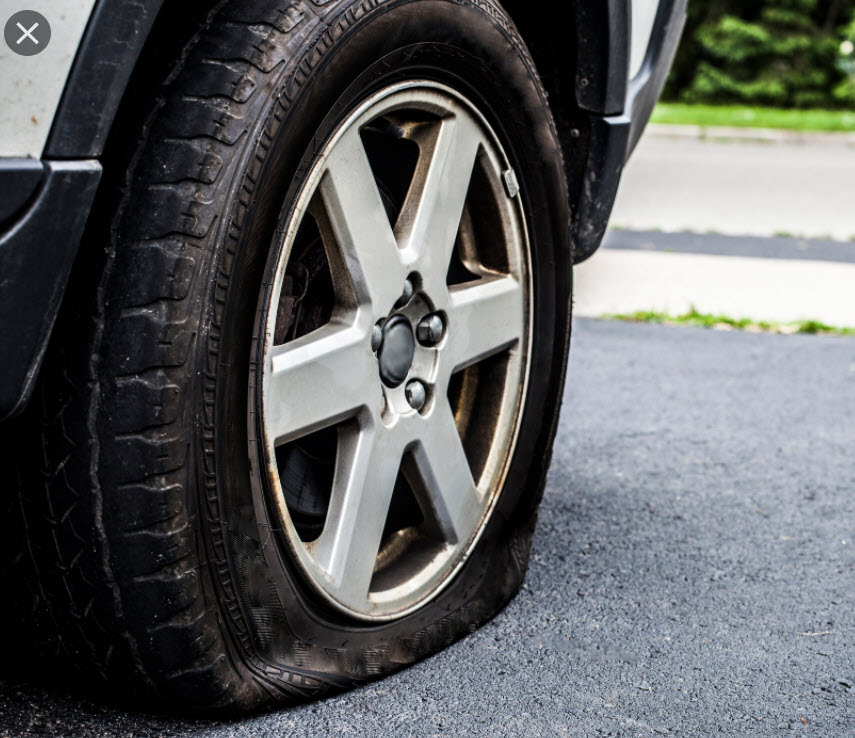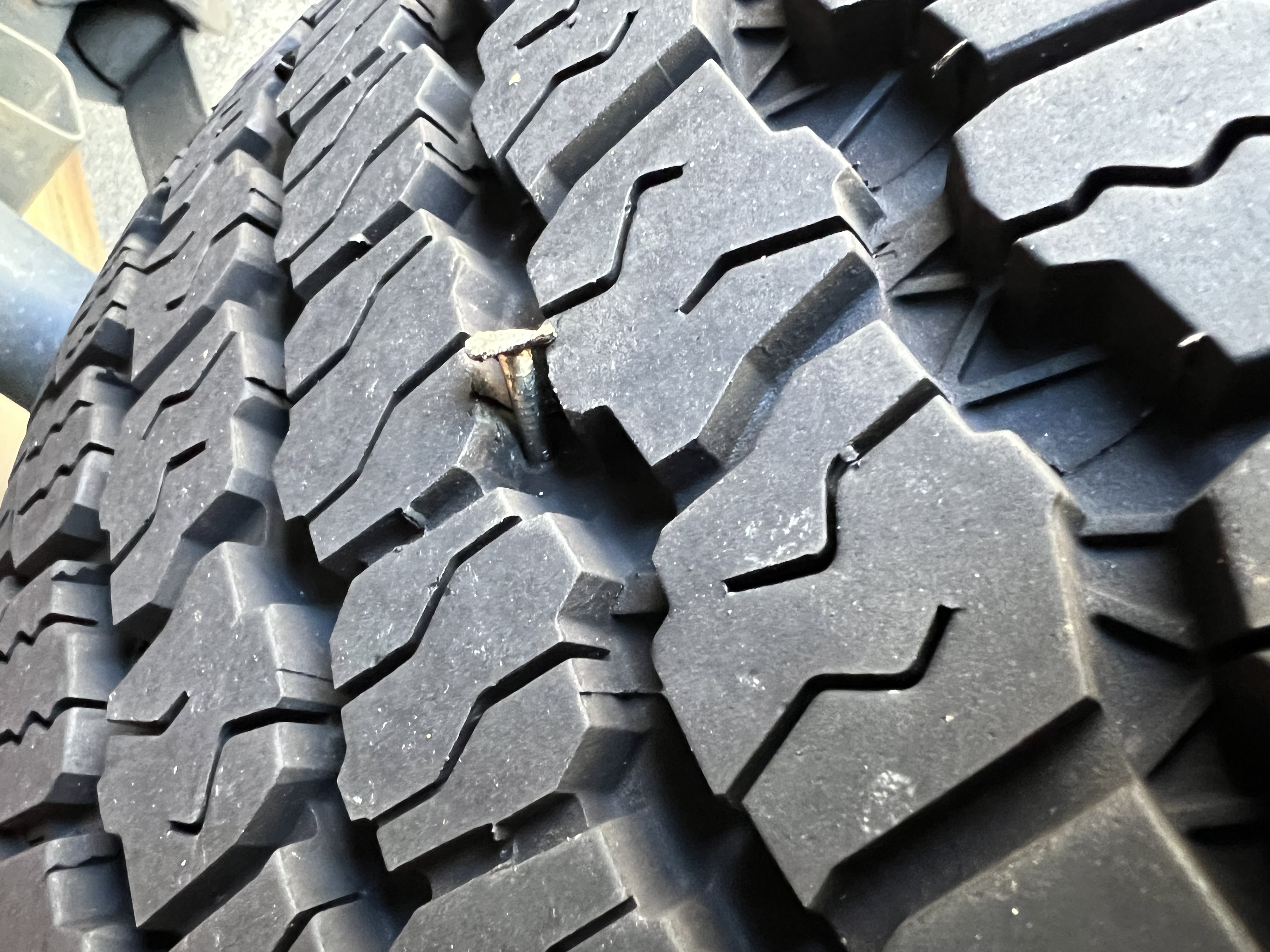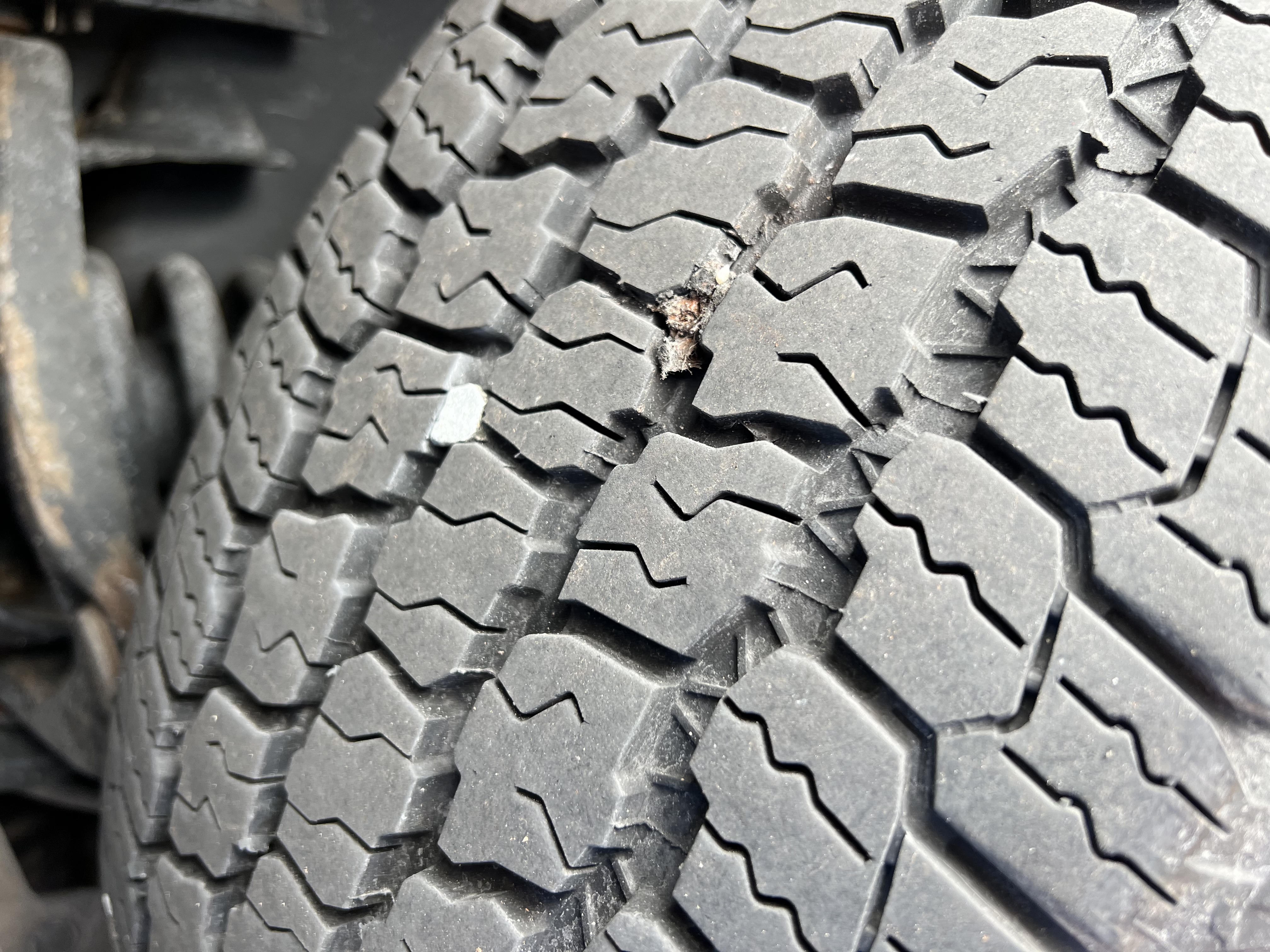When it comes to fuel saving tire maintenance, understanding the impact of properly maintained tires on fuel efficiency is crucial. Tires play a fundamental role in the overall performance and safety of a vehicle, particularly in commercial truck fleets where they directly influence fuel consumption and operating costs.
Regularly inspecting and maintaining tires not only improves fuel economy but also extends tire life, enhances safety, and contributes to environmental conservation by reducing fuel consumption. Factors such as tire pressure, alignment, and tread depth are critical in ensuring that your fleet operates at optimal efficiency.
One of the most effective methods to achieve these goals is through nitrogen tire inflation. Unlike regular air, nitrogen maintains tire pressure longer, reduces the risk of blowouts, and improves fuel efficiency. Our mobile onsite nitrogen tire inflation services in Virginia, Maryland, Pennsylvania, North Carolina, Tennessee, and Georgia are designed to provide these benefits right at your location, making the process convenient and efficient.
By implementing a comprehensive tire maintenance program, fleet managers can realize significant cost savings and improve their fleet’s overall performance. To learn more about how our services can benefit your fleet, request fleet pricing, contact our office at (703) 429-0382, or email Mike.LoPresti@fuelandtiresaver.com. Start your journey towards a more efficient and environmentally friendly fleet today!
Table of Contents
ToggleWhy Proper Tire Inflation Matters

Proper tire inflation is a cornerstone of effective fuel saving tire maintenance. Ensuring that tires are inflated to the manufacturer’s recommended levels is crucial for several reasons. Firstly, correctly inflated tires reduce rolling resistance, which means your trucks require less energy—and thus less fuel—to move. This simple adjustment can lead to noticeable fuel savings over time.
Moreover, properly inflated tires wear more evenly, extending their lifespan and reducing the frequency of replacements. This not only lowers tire-related expenses but also minimizes downtime for your fleet, keeping your trucks on the road and productive.
Safety is another critical factor. Under-inflated tires can overheat and are more prone to blowouts, while over-inflated tires can lead to reduced traction, especially in adverse weather conditions. Both scenarios increase the risk of accidents, which can have severe financial and legal repercussions.
From an environmental perspective, maintaining proper tire pressure contributes to lower CO2 emissions. When tires are under-inflated, engines have to work harder, consuming more fuel and releasing more pollutants into the atmosphere. By keeping your tires properly inflated, you’re not just saving money; you’re also playing a part in preserving the environment.
Incorporating regular tire pressure checks into your maintenance routine is essential for maximizing these benefits. Utilizing nitrogen for tire inflation, as we offer in our mobile onsite services, can further enhance these advantages by maintaining tire pressure more consistently over time.
Benefits of Nitrogen Tire Inflation

Nitrogen tire inflation offers numerous advantages over traditional air inflation, making it an excellent choice for those focused on fuel saving tire maintenance. One of the primary benefits is that nitrogen molecules are larger and less permeable than oxygen molecules. This means that nitrogen-inflated tires maintain their pressure for a longer period, reducing the need for frequent top-ups and ensuring optimal performance.
Another critical advantage of nitrogen is its ability to reduce moisture inside the tire. Traditional air contains humidity, which can lead to corrosion of the steel belts and inner liners, ultimately weakening the tire structure. Nitrogen is dry and helps prevent this internal moisture build-up, thereby extending the life of your tires.
The consistent tire pressure achieved with nitrogen inflation also enhances fuel efficiency. With less frequent pressure fluctuations, your tires maintain the ideal contact with the road, reducing rolling resistance and thereby improving fuel economy. This can lead to significant cost savings, especially for fleets with multiple vehicles.
Safety is another area where nitrogen inflation shines. Properly maintained tire pressure minimizes the risk of blowouts and provides better handling and traction, especially in extreme temperatures. Nitrogen’s ability to maintain stable pressure is particularly beneficial in regions with significant temperature variations.
Lastly, nitrogen tire inflation is environmentally friendly. By improving fuel efficiency and reducing the need for tire replacements, you contribute to lower CO2 emissions and less landfill waste from discarded tires. This makes nitrogen inflation a win-win for both your bottom line and the planet.
Incorporating nitrogen inflation into your tire maintenance routine can offer substantial long-term benefits. Our mobile onsite nitrogen tire inflation services make it easy and convenient to take advantage of these benefits without disrupting your daily operations.
Regular Tire Inspections and Maintenance
Regular tire inspections and maintenance are crucial components of effective fuel saving tire maintenance. Consistently checking your tires can prevent minor issues from escalating into significant problems, thereby ensuring optimal vehicle performance and safety.
One key aspect of tire maintenance is monitoring tire pressure. Under-inflated tires can increase rolling resistance, leading to higher fuel consumption and faster tire wear. Conversely, over-inflated tires can reduce traction and make the ride more uncomfortable. Ideally, tire pressure should be checked at least once a month and before long trips. Use a reliable tire pressure gauge and compare the readings to the manufacturer’s recommended levels.
Tread depth is another critical factor. Tires with insufficient tread can compromise vehicle handling and increase stopping distances, particularly on wet or slippery surfaces. Use the penny test or a tread depth gauge to ensure your tires have adequate tread. If the tread is worn down to 2/32 of an inch, it’s time for a replacement.
Additionally, it’s important to look for signs of uneven wear, which can indicate alignment or suspension issues. Uneven wear patterns, such as cupping or feathering, can significantly affect tire longevity and vehicle handling. Regularly rotating your tires, typically every 6,000 to 8,000 miles, can help promote even wear.
Don’t overlook the importance of tire balancing and alignment as part of your maintenance routine. Proper alignment ensures that all tires are perpendicular to the ground and parallel to each other, which minimizes tire wear and maximizes fuel efficiency. Balancing, on the other hand, ensures that the tire’s weight is evenly distributed around the axle, reducing vibrations and improving ride quality.
Inspecting your tires for cuts, punctures, and embedded objects is also vital. Addressing these issues promptly can prevent blowouts and other serious incidents. Regularly cleaning your tires and wheels can also help you spot potential problems early, ensuring that dirt and debris don’t mask any damage.
Incorporating these regular inspections and maintenance practices into your routine can greatly enhance the lifespan of your tires, improve fuel efficiency, and ensure safer driving conditions.
Impact of Tire Tread on Fuel Efficiency

The impact of tire tread on fuel efficiency is often underestimated. However, the design and condition of your tire tread play a crucial role in how much fuel your vehicle consumes. When discussing fuel saving tire maintenance, understanding how tire tread affects fuel efficiency is essential.
Tread patterns are engineered to provide optimal traction and handling under various driving conditions. However, as tires wear down, the tread’s ability to effectively grip the road diminishes. This can lead to increased rolling resistance – the friction that occurs when a tire rolls over a surface. Higher rolling resistance requires more energy (and thus more fuel) to maintain the same speed, resulting in decreased fuel efficiency.
Moreover, certain tread designs are specifically created to reduce rolling resistance. These low rolling resistance tires often feature smoother tread patterns and are constructed from special rubber compounds that minimize energy loss. While these tires may have a higher upfront cost, they can lead to substantial fuel savings over time, making them a worthwhile investment for fleet operators and individual drivers alike.
Another factor to consider is tread depth. Tires with shallow tread depth can lead to hydroplaning on wet roads, necessitating slower speeds and more cautious driving, which can indirectly affect fuel consumption. Conversely, tires with deeper treads are better at channeling water away from the tire’s contact patch, maintaining better traction and allowing for more consistent speeds and efficient fuel use.
It’s also important to note that uneven tread wear can be a significant issue. If your tires are not wearing evenly, it could indicate problems with alignment, suspension, or tire pressure – all of which can affect fuel efficiency. Regularly rotating your tires and maintaining proper alignment can help ensure even tread wear, thus optimizing fuel efficiency.
By paying close attention to the tread on your tires and opting for designs that promote low rolling resistance, you can achieve better fuel economy. This not only helps in reducing fuel costs but also contributes to a greener environment by lowering your vehicle’s carbon footprint.
Environment Benefits of Fuel Efficient Tires

Fuel efficient tires offer more than just savings on fuel costs; they also provide significant environmental benefits. As sustainability becomes a growing concern, investing in fuel efficient tires can contribute to a greener planet in several ways.
One of the primary environmental benefits of fuel efficient tires is their ability to reduce greenhouse gas emissions. Vehicles with tires that have low rolling resistance require less energy to move, which means they burn less fuel. This reduction in fuel consumption directly translates to lower carbon dioxide (CO2) emissions, a major contributor to global warming. By simply switching to fuel efficient tires, individuals and fleet operators can make a noticeable impact on their carbon footprint.
Additionally, fuel efficient tires often have longer lifespans compared to conventional tires. The materials and technologies used in these tires are designed to minimize wear and tear, extending the period between replacements. This longevity means fewer tires end up in landfills, reducing the waste and environmental degradation associated with tire disposal.
Furthermore, the production of fuel efficient tires typically involves more sustainable manufacturing practices. Many manufacturers are now committed to using eco-friendly materials and processes that reduce the overall environmental impact. This includes using renewable resources, reducing energy consumption during production, and minimizing the release of harmful chemicals.
Using fuel efficient tires also encourages the adoption of other eco-friendly driving habits. For example, maintaining proper tire pressure, which is crucial for fuel efficiency, also leads to safer driving and better vehicle performance. This holistic approach to vehicle maintenance not only benefits the environment but also enhances the overall driving experience.
In conclusion, the environmental benefits of fuel efficient tires are manifold. From reduced greenhouse gas emissions to less waste in landfills and more sustainable manufacturing practices, these tires represent a step forward in the pursuit of a greener planet.
Interested in learning more about how fuel efficient tires can benefit your fleet and the environment? Request Fleet Pricing, contact our office at (703) 429-0382, or email Mike.LoPresti@fuelandtiresaver.com today!


